What I wish I’d known as an ST3: Reflections from the Wales Deanery
By Francesca Solari and Tariq Yasin
Specialty Trainees, University Hospital Wales, Cardiff
A reflection of the challenges, surprises and lessons learned from stepping up to ST3, gathered from trainees across Wales.
Introduction - why and how
Each year, a group of enthusiastic new trainees arrives in the deanery. They are fresh-faced — sometimes just out of core training, sometimes having taken a more scenic route. But they are here, and they are ready to get stuck into everything that ST3 has to offer.
The only issue? Many feel utterly terrified about what’s involved. They may be moving across the country, starting work at registrar level for the first time, and feeling completely out of their depth.
How do we know this? Because we, your authors, both felt that same mix of trepidation and fear. Yet, alongside it, we had curiosity and enthusiasm to burn.
Now, as senior trainees in the Wales Deanery, we wanted to share our experiences with this year’s incoming cohort. But we know that we are just two people in a much bigger deanery, with decades of collective experience. So, we asked our fellow trainees what they wished they’d known as new ST3s — and here we present their reflections, thoughts, and advice for this year’s cohort.
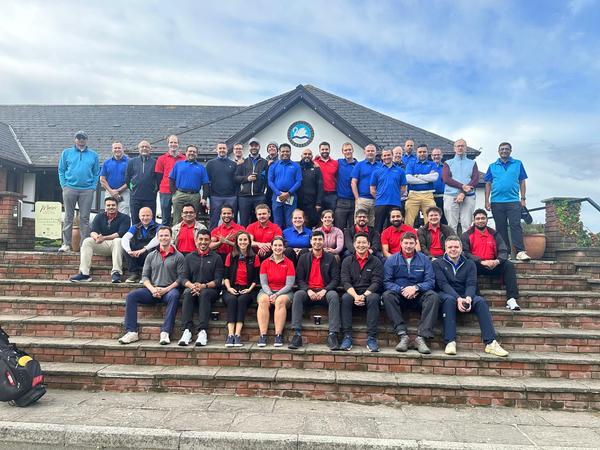
Wales Deanery Golf Day
Taking that step-up
A recurring theme in our trainees’ reflections was how daunting the step-up to registrar felt. Many described fears about decision-making, operating independently, managing on-calls, and supervising junior colleagues. For some, this was combined with the challenge of moving to a new hospital — or even a new country.
Imposter syndrome came up time and again. As one trainee put it:
"One day you’re an SHO, the next you’re the reg. It feels like a big step up in responsibility."
For many, especially those coming straight from SHO level, the transition felt like a shock. Trainees spoke about the shift from being an information-gatherer to becoming the decision-maker, and how delegation was a skill that needed to be learned:
"The unexpected thing for me is how difficult it is to manage juniors."
Perhaps it gives us all a newfound appreciation for what our consultants go through!
But what came through clearly was that, although the step up is challenging, the support is there:
"I’ve been genuinely reassured by the level of support from my seniors. They understand the transition you’re going through, and they’re there to guide you, not judge you."
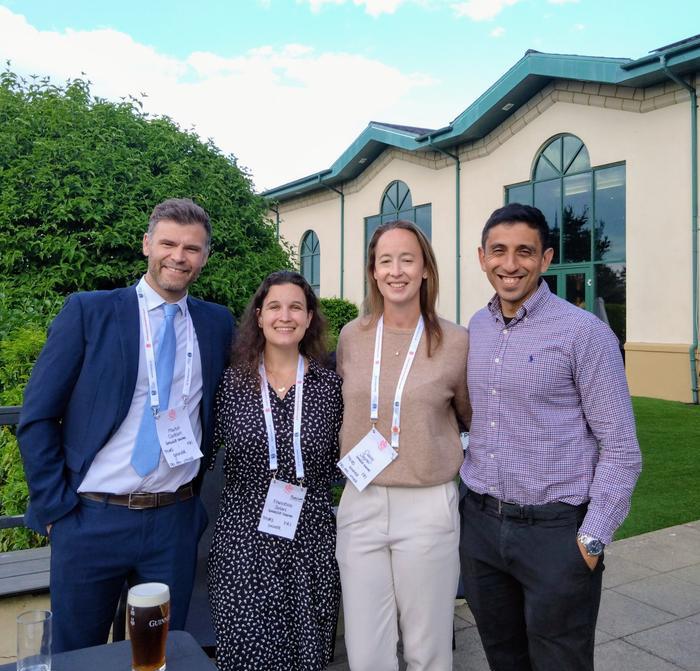
The ST5 support crew
The operating
“I was scared about being left alone to cope."
There’s a common perception among trainees that becoming the registrar means you’ll be left to sink or swim. But the old adage “feel free to cope” just isn’t the reality.
Several respondents said they’d worried they’d be “expected to be able to do wrist fixations, hemiarthroplasties, ankles” from day one. In truth, your seniors simply want to understand your level so they can train you appropriately.
The best advice? Approach the role with enthusiasm and a willingness to learn — and be honest about your limitations:
"The best approach is to tackle the role with enthusiasm and a willingness to learn, while being open about your limitations."
No one expects you to be the finished article at ST3.
Another key tip from trainees:
"Reading up on cases, understanding the equipment needed, and being ready to discuss the steps of the procedure is far more effective than trying to appear overconfident or pretending you have skills you don’t."
And remember: "The DHS — it is not an SHO operation. Never underestimate a DHS." (Sage advice — if you know, you know!)
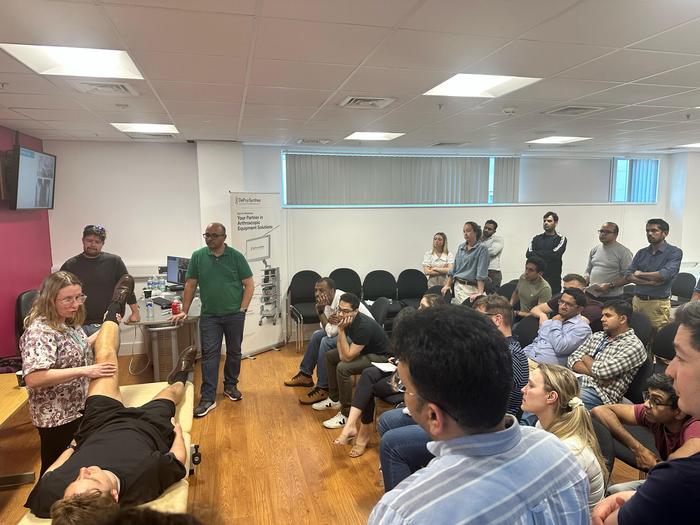
FRCS Bootcamp - one of many free training events hosted by the deanery
The dreaded ISCP: given a bad name
"It’s awful."
"It’s time-consuming."
ISCP is, let’s be honest, the bane of most of our lives. Many of our trainees despise its existence — yet they also recognise that, when used well, the portfolio can be a genuinely valuable resource.
Top tips from the deanery? Do ISCP little and often. One trainee suggested setting aside 15 minutes a day. While we, your authors, don’t necessarily advocate that level of dedication, the sentiment is right: it’s a tool for reflection and experiential learning, and definitely not something to leave until the week before your ARCP. (We say this from experience — trust us!)
And don’t be afraid to spam your supervisors. You might feel like you’re being an inconvenience, but in reality, it takes them no time at all to sign off your learning. That said, a well-placed coffee and laptop in front of a consultant has never been a bad idea — and rarely fails to get results!
How to manage yourself, stress and try to be normal
Unsurprisingly, orthopaedic surgeons live up to their stereotype of being an active bunch. The majority of our respondents said that maintaining an exercise routine and keeping up with hobbies was key to managing stress and looking after themselves.
Our Welsh trainees also recognised that this can be a tough time:
"Transitioning to a completely new place, far away from my existing social circle, was a challenge."
Wales is a large geographical deanery, and our trainees know how hard it can be to uproot yourself and move further from friends and family. But many reflected that the more remote placements often come with beautiful surroundings, incredible hospitals, and supportive trainers — which helped ease the transition.
Another consistent message was the importance of having a network:
"When things get tough, it’s your support network that helps you stay grounded. You don’t have to face it all alone."
And perhaps the most important piece of advice:
"Enjoy your work! If you enjoy it, it won’t seem anywhere near as stressful."
Enjoying the job, staying healthy and active, and having a solid support network helped our trainees navigate what is undoubtedly a challenging part of their careers.
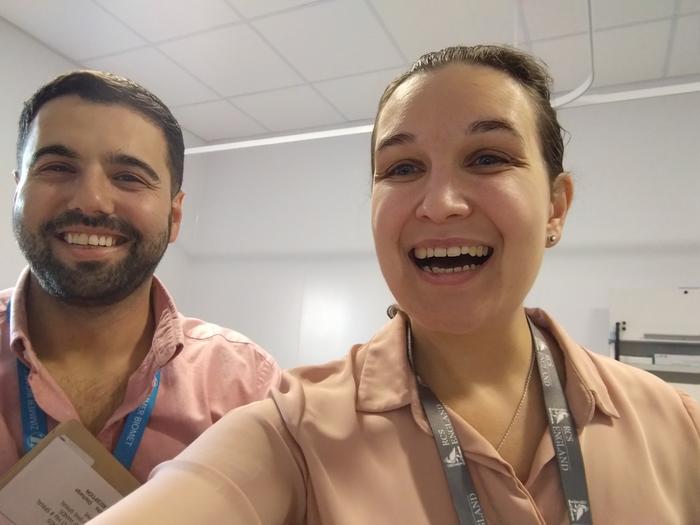
On Wednesdays we wear pink!
Final thoughts - you're more ready than you think
Reflections from Welsh trainees fell into a few common themes: The transition is hard, but everyone around you understands — and your seniors want to support you. ISCP isn’t just a soul-sucking time sink — it’s also a tool that, if used consistently, can help you grow. What you expect your surgical level to be when you start and what is actually expected of you will not match. Focus on trauma basics like hip fractures, reductions, and DHSs. These are your foundation. Look after yourself — exercise, talk to people, and keep perspective. You’ll get through it far more easily than you think.
Most of all, remember this: you’re not alone. Everyone’s been through it. And you’re more ready than you think. One final quote to end on:
“I’ve been genuinely reassured by the level of support from my seniors… that support feels consistent. Trainers understand the transition you're going through — and they’re there to guide you, not judge you. It makes a real difference knowing you’re not expected to handle everything alone.”
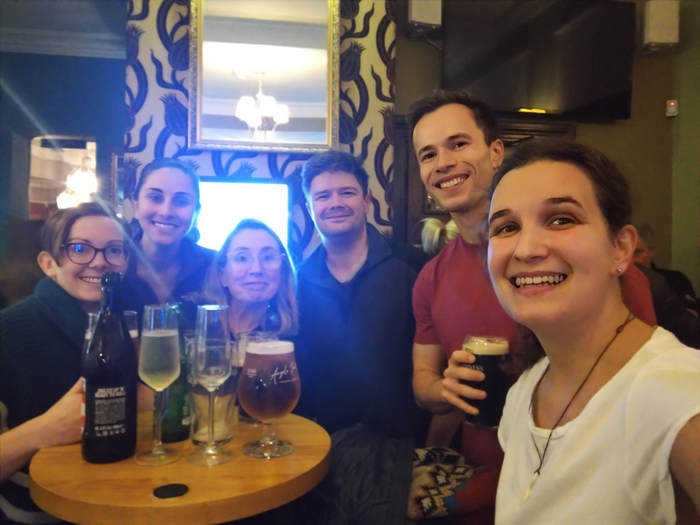
Post UKITE aftermath
